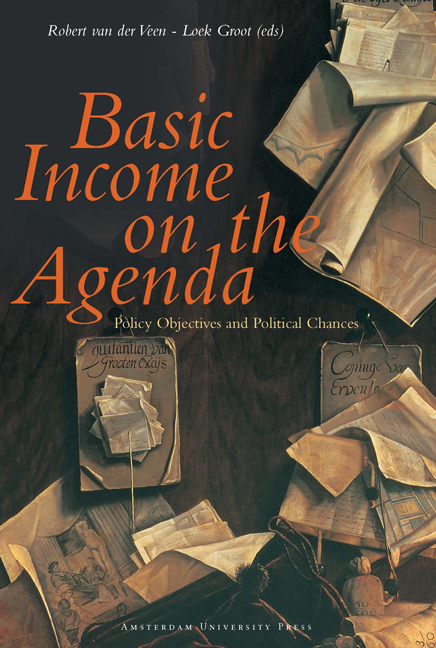Short Cuts and Wrong Tracks on the Long March to Basic Income: Debating Social Policy Reform in Germany
Published online by Cambridge University Press: 23 January 2021
Summary
It has become a – certainly useful – ritual on BIEN's Congresses to recapitulate publicly, in the form of short country surveys, the path taken in each nation on the long march to basic income. Having myself been involved twice up to now in this procedure, I dare to remark that an uninvolved and somewhat malicious observer of these sessions, listening to the succession of country reports, might well feel as if he or she were attending a – let's say, Chinese – people's congress, with its hand-picked speakers unwaveringly presenting somewhat strained success stories concerning the supposedly smooth achievement of official output targets. Now, as we all know (and may or may not regret), even Chinese people's congresses were better in the old days. To be sure, the message of the following national report, of my – admittedly and inevitably subjective – remarks on the peculiarities and new directions in the recent German debate on social policy reform, is utterly sobering for any orthodox apologist of basic income in its puristic sense. To cut a long story short: there is no good news from Germany concerning the basic income matter.
But that is the short story only. The long version roughly goes as follows: there indeed has been a broad intellectual debate on different concepts and variants of staterun minimum income provisions in Germany over the last years: debates on publicly rewarded ‘civic work’ (‘Bürgerarbeit’), on a negative income tax-like ‘citizen's income’ (‘Bürgergeld’) or on public subsidies for low-paid jobs (‘Kombilohn’ and other models); I will briefly sketch these debates in what follows. But the point to be made here is that exactly those proposals that resemble most the idea of an unconditional and non-work-related basic income did not make it to the public, political debate. Inversely, the concepts that actually did reach a wider public did so only because they fit perfectly well into the revival of work ideology that German politics and society are currently experiencing (as a matter of fact, one might say that these concepts have even boosted this revival.
- Type
- Chapter
- Information
- Basic Income on the AgendaPolicy Objectives and Political Chances, pp. 247 - 256Publisher: Amsterdam University PressPrint publication year: 2000
- 2
- Cited by



